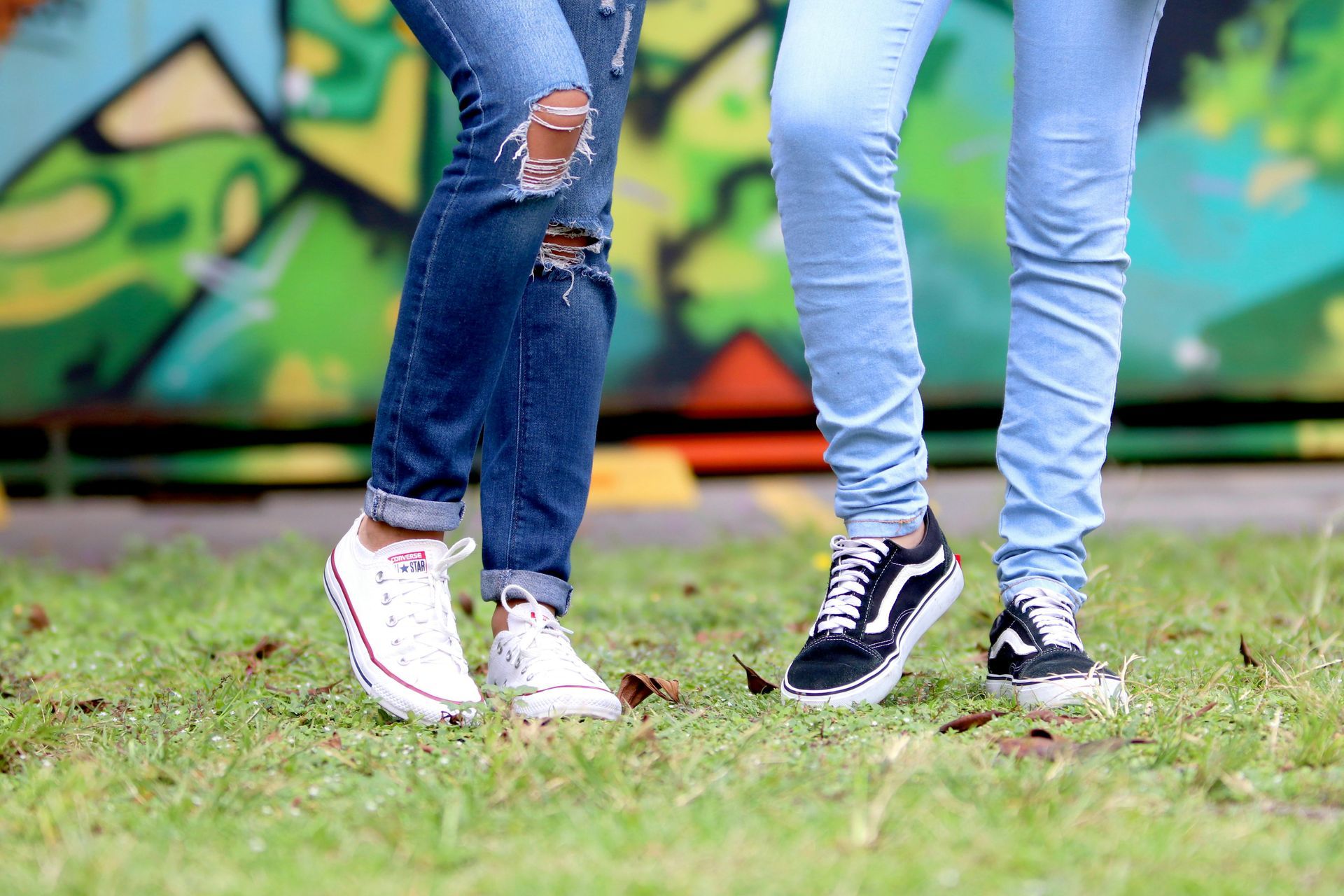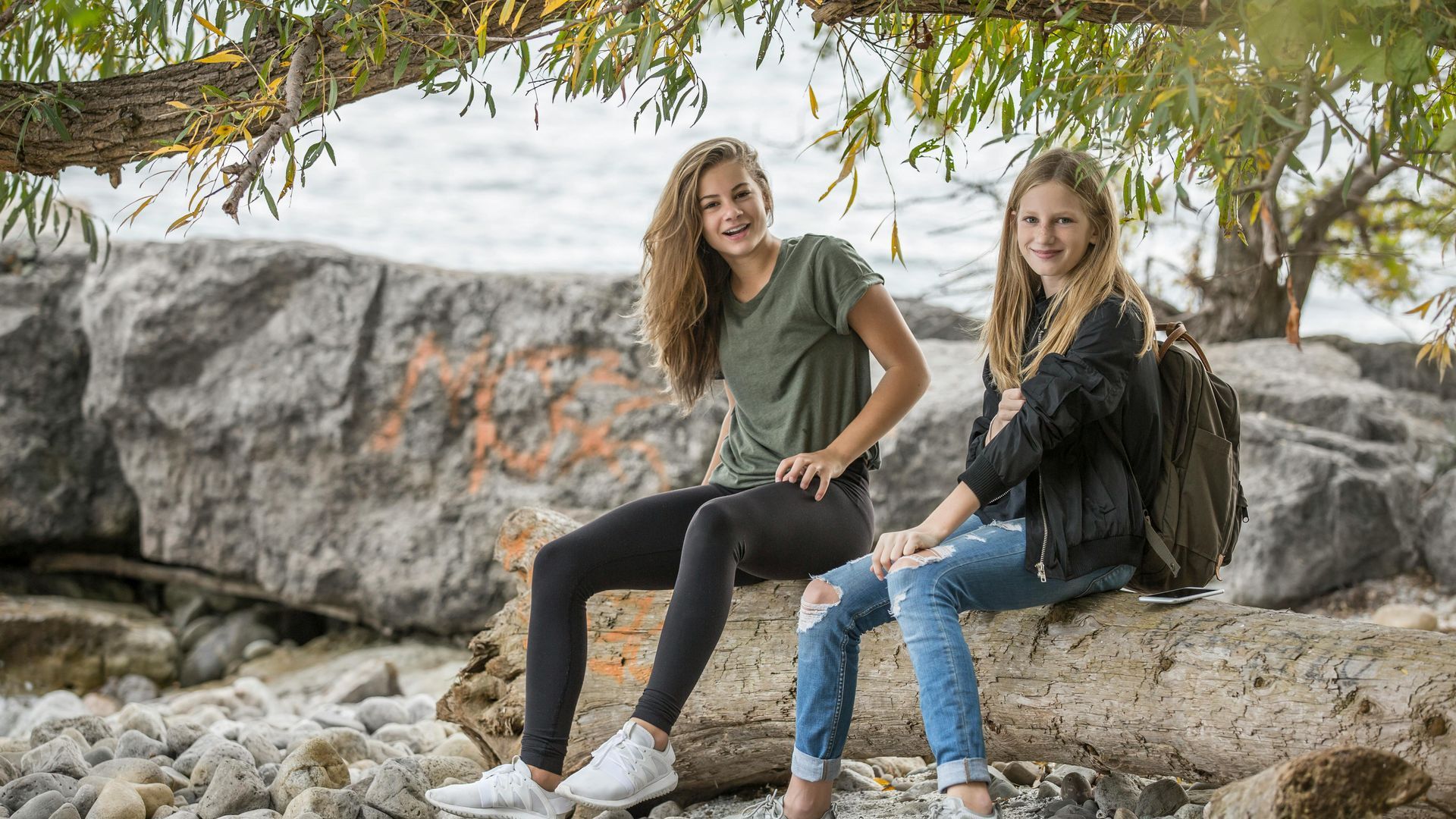How We Can Support Young People Facing Eco-Anxiety
Small mindfulness habits can help ground us, especially when shared as a family or community.
If you are worried about how the next generation is coping with climate change, you're not alone, but luckily, there is a lot we can do.
As climate conversations ramp up, so too do the feelings of worry, fear, and helplessness, especially among younger generations. It's a growing trend known as eco-anxiety, and while it's understandable, it’s also something we can help address, together.
At Good for the Hood, we’re hearing more and more from councils, parents, teachers, and community leaders who want to know:
How do we support young people emotionally, while still encouraging positive environmental action?
In a recent session inside our members-only
@ HOME program, we explored just that. Below, we share some takeaways with you, so you can support the young people in your life and feel a little more hopeful about the future too.
What Is Eco-Anxiety and Why Are Young People Feeling It?
More young (and old) people than ever are expressing fears about climate change and environmental destruction and it’s not surprising, with the volume of bad news out there that it can feel overwhelming.
But there are practical, simple ways we can help them reduce this anxiety and become more resilient and positive about the future.
How to Support Youth with Eco-Anxiety
We recently spoke with Cooper Chapman, former professional surfer and founder of
The Good Human Factory and
Blue Minds Project. Cooper works closely with communities and schools across Australia, helping young people build resilience through simple daily habits.

Here are 3 Ways to Move from Eco-Anxiety to Empowerment
1. Appreciation: Reconnect with Nature
Encouraging young people to spend time in nature and appreciate the environment can help reduce feelings of stress. It’s about reconnecting them with the reasons why taking care of the planet matters.
2. Awareness: Stay Present and Mindful
It’s hard to make change when we’re overwhelmed. Small mindfulness habits can help ground us, especially when shared as a family or community. Go for a walk in nature, take note of what you see, hear and feel around you.
3. Action: Take Simple, Sustainable Steps
Taking even small steps can help young people feel more positive and less anxious. Actions which combine advocacy, positivity and social connection are likely to have a greater impact. Every small action counts, especially when it’s part of a wider community effort.
Other simple actions you can try this week:
- Bring a reusable cup when grabbing your coffee.
- Sort your waste properly, yes, even the soft plastics!
- Switch off lights and devices when not in use.
- Join a local clean-up or tree planting
- Join a group with other people who care about the same sorts of things as you
Why This Matters (And How Councils Can Help)
Did you know:
- We rank #2 in the world for plastic waste per capita.
- We’re #1 when it comes to textile waste.
Those numbers can feel heavy, but they’re also a reminder. Councils are often the primary source of information and services that locals look to. Collectively, each local government area has a massive potential for positive impact.
This is exactly why we created the @ HOME program. It's a council-supported initiative that gives communities across Australia the tools to build a more sustainable, resilient future, starting right at home.
From practical climate workshops to resources that support mental wellbeing and behaviour change, the program is designed to meet people where they’re at.
Bring These Events and Resources to Your Community
Local councils can help communities greatly by providing these kinds of supportive resources and education.
The @ HOME program partners with councils to:
- Provide community-friendly education on topics like energy, waste, and wellbeing
- Offer workshops that combine climate literacy with mental wellbeing strategies
- Equip residents with tips and tools they can use at home right away
The tips above are just a small glimpse into what @ HOME members access regularly through our tailored program of support and education.
If you’re part of a local council and want to empower your residents with simple, impactful resources like this, we’d love to partner with you.
Explore the @ HOME program and how we support councils.


SIGN UP FOR SPECIAL UPDATES WITH THE MONTHLY HOOD NEWS.

